- Home
- Gerald Hammond
Sting in the Tail
Sting in the Tail Read online
STING IN THE TAIL
Gerald Hammond
© Gerald Hammond 1994
Gerald Hammond has asserted his rights under the Copyright, Design and Patents Act, 1988, to be identified as the author of this work.
First published in 1994 by Macmillan London Limited.
This edition published in 2019 by Endeavour Media Ltd.
Table of Contents
Author’s Note
Chapter One
Chapter Two
Chapter Three
Chapter Four
Chapter Five
Chapter Six
Chapter Seven
Chapter Eight
Chapter Nine
Chapter Ten
Author’s Note
At the time of writing (1993), the law and other constraints surrounding both setaside land and tail docking were as stated in the text. The rules of setaside have since been modified.
It is difficult to believe that our legislators and the governing body of veterinary surgeons will continue, let alone succeed, in their efforts to prevent the docking of the tails of working gundogs – a practice which is carried out with good reason and in the interests of the dogs themselves.
G.H.
Chapter One
I was supposed – by my partners – to be catching up on such news in the various sporting magazines as might be of professional interest to us. But, not for the first time, a day spent in the cold, fresh air, teaching a succession of spaniels the essence of their future jobs, had caught up with me and I had dozed off in front of the sitting-room fire. My wife’s arrival jerked me back into the waking world.
I snatched a quick glance towards our son, over whom I was supposed to be keeping a watchful eye, but Sam, in his playpen, had also dozed off. He had been chewing on a woollen elephant. I had only been chewing on a problem.
I accepted Beth’s apologies awkwardly. I was almost recovered now from the illness that had ended my army career, but I had given them several frights along the way and Beth, in common with my other partner Isobel, persisted in treating me as if I were a piece of fragile china. This I found mildly comforting when I was off colour and a humiliating nuisance when I was not. So while I felt guilty for sleeping, Beth felt guilty for waking me up. In the midst of so much guilt, love grew like a weed.
‘I’ll leave you to have the other twenty winks,’ she said softly.
‘I’m awake,’ I told her.
‘Sleep if you want to. It’s dark outside and the work’s all done.’ She paused doubtfully, but when I shook my head she came all the way into the room, stooped to add a couple of logs to a fire which had almost expired and then sat down beside me. ‘It’s about tomorrow. Nothing to worry about,’ she added quickly in case I should worry myself into a relapse. ‘But one of the Guns has broken his wrist and cried off.’
I cast my mind back. ‘It’s the same party that came at the end of October, isn’t it?’ I asked. ‘From Edinburgh?’
‘That’s right.’
‘Which one’s injured?’
‘Mr Sangster,’ Beth said. ‘He’s the tall man with the ginger moustache.’
‘And a retriever to match. I remember him. Damn it!’ I added. ‘He’s the only one of that bunch that can shoot. They’d booked for a hundred-bird day?’
‘A hundred and fifty, this time,’ Beth said. ‘They seem to have enjoyed themselves.’
‘They’ll never make it without him. They’ll blow off a thousand rounds, bring down fifty birds and try to get off with paying accordingly. We have Mr Sangster’s deposit safe and sound?’
‘Of course.’
I gave it some more thought. Our business was a breeding and training kennel, primarily of working springer spaniels although with occasional excursions. But any trainer of working gundogs, especially if he aspires to success in field trials and the kudos and prices that that success brings, needs ready access to ground with at least a modicum of game, so we had gone into partnership with Angus Todd to run a commercial shoot.
Privately I had mixed feelings about operating a commercial shoot and providing sport for busy executives or facilities for them to entertain their most important associates, all at so much per bird. I had been brought up to believe that one paid for one’s shooting, not just with money but with service to the land. On the other hand, it was a reasonable money-spinner, a valuable training facility and an equally valuable shop window for the dogs. If the visitors were prepared to delegate to us their share of service to the land and to pay accordingly, so much the better.
Angus attended to most of the keepering while, by combining visits to his snares and feeders with our usual training sessions, we helped out whenever he was busy rearing pheasant poults for the shoot and for sale, or when he was conducting visiting parties in pursuit of wild geese. As a keeper, Angus was good; but he had no head for management and on shooting days he limited his participation to controlling the line of beaters. The rest was up to us.
‘So what will we do?’ Beth asked.
Several local men would be happy to fill the gap. I passed them in mental review and made the obvious choice. ‘Give Charlie Hopewell a ring,’ I said. ‘If he’s free, he can have the day on the usual terms.’ In addition to being a first-class shot who could be counted on to fill the bag – an important consideration on a commercial shoot at which the basis of agreement was a price per bird in the bag – he was always willing to pay up at half the going rate which, taken together with the forfeited deposit, would make up most of the shortfall.
‘He’ll want to bring that damned dog of his,’ Beth said. She rarely indulges in even such modest swearing but I could see her point. Charlie Hopewell had saddled himself with a springer spaniel of excellent pedigree but show-bench lineage. Show springers often lack enough sense to answer to their own names, but Clarence was not quite so low in the batting average as that. He was an affectionate and singularly handsome liver and white springer with good markings and beautifully feathered legs and tail. He even showed a faint vestige of talent. Any dog can crash through the bushes scaring up game, but Clarence, although an exuberant and extroverted dog, was usually controllable and had learned to retrieve after a fashion. On occasions, however, he had been known to run riot.
‘I’ll make it clear that if Clarence comes he stays on a heavy chain.’
‘Henry was probably hoping to be asked,’ Beth said gently.
Henry was the husband of Isobel, my other partner. He would have expected his day of driven pheasant shooting for nothing, on top of which he might well have got boozed up at lunchtime and missed everything all afternoon.
‘Tell Henry we can’t spare him from his duties as a host,’ I said. Although Henry was not properly a part of the firm, he was a useful standby in times of trouble and always available to meet the guest Guns and entertain them at table. ‘Tell him that he can shoot if another Gun cries off.’
‘You tell him,’ Beth said.
‘I’ll tell Isobel.’
‘All right.’ Having reached a satisfactory compromise which did not necessitate either of us having to disappoint Henry, Beth changed tacks. ‘Mrs Todd can come over to look after Sam, feed the puppies and keep an eye on the place. Do you want me to pick up with Jason as usual?’ Jason was Beth’s personal Labrador.
‘Of course,’ I said.
‘Which spaniels are we taking?’
We settled down to the usual lengthy debate. A shooting day with the picking-up and beating under our control was a perfect chance to put a polish on the trained dogs and to sharpen up those with important competitions still to come but, even with frequent exchanges of dogs, there was a limit to the number who could be given experience on a guest day by Isobel and myself. Be
th, who would have been perfectly capable of sharing in the advanced training of our stock, was terrified of doing more harm than good, so she limited herself to basic puppy-training – plus, of course, all the duties of wife and mother and gardener.
To add to our burdens, we were once again between kennel-maids, the eccentric Daffy, who had filled the post very satisfactorily for more than a year, having suddenly decided to return to her respectable suburban home. That duty, which had originally brought Beth to Three Oaks Kennels, was hers again for the moment. Somehow, she always managed to cope, with so little complaint that I had to remind myself to be duly grateful and to help out whenever I could.
*
The morning was fair, or as fair as one has any right to expect in north-east Fife in early December. An overnight frost had lifted and now a thin sun was shining through the low mist that clung to the ground.
A breeze was developing out of the morning’s calm and I hoped that there was no real wind to follow. We were developing the shoot to provide difficult birds, a fact which was appreciated by most of our visitors. But any wind above a moderate breeze would put the birds beyond the skill of this particular party; and if they did not enjoy themselves they would neither return nor spread the good word.
Isobel Kitts, the third partner, walked in while we were at breakfast. Beth was spooning something sloshy into Sam, who was sitting up in his high chair and looking very pleased with himself. Although younger than Henry, Isobel was nevertheless a lady of a certain maturity; but she was always on hand when there was work to be done – unless, that is, she had been celebrating the night before. I was relieved to see that she was fresh and alert that morning. For all her motherly appearance and usual comparative sobriety, Isobel could occasionally fall right off the wagon. Henry, she said, had left early to breakfast with the guests.
Beth and I had put in an hour before breakfast, so that little remained to be done. Beth did most of what there was while I went over the order of the day with Isobel. When Angus Todd’s Land Rover rattled up the drive and deposited Mrs Todd, the dogs were already in their travelling boxes. Three dogs went into the back of the Land Rover, the others into our old estate car.
We lingered for a few minutes while Beth gave Mrs Todd last-minute instructions about Sam’s diet and regime, then got under way. We crossed the Tay by the road bridge, battled through the usual Saturday shopping traffic and left Dundee on the road towards Perth. Some miles later we turned north off the dual carriageway, away from the Tay and under a great skein of greylag geese which were heading for their feeding grounds. After a few miles of country road we came to Foleyburn village and forked right. The Sidlaw Hills began a mile ahead and our destination lay just beyond the first crest. We entered an unpretentious driveway of Foleyknowe and passed the ‘big house’ which was standing empty.
Angus must have pushed his old Land Rover hard, because we barely managed to arrive at Foleyknowe on his heels.
Thanks to a monetary arrangement with the farmer, an acre of stubble was left unploughed for us until February. Here the beaters and their dogs were already assembling, a mixed crew of men, and two ladies, who turned out week after week just for the fun of it and for the sake of the traditional Keeper’s Day at the end of the season. The pay traditionally accorded to beaters would, in any other field, have brought the unions down on the employer’s head. Not that many of the team had much need of the money. I recognized several spaniels which we had sold, full or part trained, for substantial sums, and it was not unknown for the better dressed beaters to be smarter than the scruffier Guns. There was a holiday air which communicated itself to the dogs.
By the time Henry and the Guns rolled up in two Range Rovers plus Henry’s hatchback, I had had a word with Angus, the beaters were apprised of the outline plan for the day and the first trio of our dogs had been brought out. Joe Little, a neighbouring Labrador trainer who was glad of the extra outing for his dogs, arrived by Volvo to help with the picking-up. Henry’s gun in its leather case was prominent on the back seat of his car. I shook my head at him and he shrugged.
Charlie Hopewell, I noticed, arrived in Henry’s car, so I guessed that he had joined the others for a hotel breakfast. His spaniel, Clarence, was subdued for once and stayed tight, leaning against Charlie’s leg instead of bouncing around and offering himself for patting or making advances to any other canine which he deemed, rightly or wrongly, to be female. Something else was different about him, but I was too busy to think about it.
Isobel went round collecting cheques from those of the Guns who had so far only put down deposits, and then joined the beaters. By long-standing arrangement, Isobel would give the dogs experience of hunting in the line of beaters while I would give retrieving practice by picking up behind the Guns.
Angus and the beaters climbed into the trailer which would convey them to the start of the first drive, while I delivered the usual lecture about good behaviour, safe shooting, keeping dogs under control and trying to mark down any pricked birds. The Guns had heard it before from me, but they listened patiently. They knew that I would have said the same if the party had consisted of Privy Counsellors with a couple of archbishops in attendance.
I led the Guns and dog-handlers away. Henry, driving Angus’s Land Rover as game-cart, gave lifts to any Guns who so wished, although the distances involved hardly justified transport. From where we had parked, two valleys, or a single valley with a bend in the middle, ran roughly east and north-west. Dense cover, between fences and hedges, flanked the burns that wandered along the middle of each valley bottom, but at most points there was room for a good-sized and almost level field between the fence and the foot of the nearby hill.
We seldom put out pegs, preferring to stay flexible in case of a sudden change of wind or weather. Usually, I placed the Guns near the foot of the hill so that the pheasants, which had followed strips of game cover to feeders among more cover on the hilltops, would be heading downhill for home, high and very fast, as they passed overhead. But that was not for this party. I lined them out closer to the trees where the birds would be approaching home base. Beth and Joe and I retired among the trees.
A word with Angus over our radios and we heard the beaters begin to work through the bushes on the hilltop. I gave a small sigh of satisfaction. Giving my life over to the training of working dogs was a pleasant way of opting out. But here, in the field, was the sharp end of it all. A primitive joy it might be and far from logical, recovering the poultry which had been released some months before to grow on in the wild and then making it as difficult as the participants could cope with; but it satisfied the inner man. To crown it, our guests were allowed to work their own dogs only on sufferance when given permission and were paying handsomely for the privilege of being ordered about and exposing themselves to the humiliation of missing abominably. I, on the other hand, was free to concentrate on the dog-work – which, as far as I was concerned, was much more fun than shooting – and, what was more, being paid for it.
The birds were coming. Angus had tight control of the beating line and instead of one great flush and a hectic minute or two the pheasants were taking off in a steady trickle, climbing away from the beaters’ dogs, then powering and finally gliding downwards, looking deceptively slow until they grew suddenly in size, flicked past high overhead and were gone.
At that spot, I could not get as far back as I would have preferred and still assess the ability of the visitors, so I took up a safe position behind a stout tree. The Gun in front of me, some fifty paces away, was a ditherer. I remembered him from his previous visit. His name, I thought, was Larrowby or something very like it. Bird after bird came for him, well within range and beginning to slow. Each time, he mounted his gun before the bird had come into range, tracked it, hesitated too long and lost sight of it behind. When at last he did get one shot off, he took tail feathers out of a hen pheasant which flew on unhurt. Well, I thought, at least he would not go home with clean barrels. A cock was coming
, brilliant in the cold sunshine. He mounted his gun and even from where I stood I could see that he was nicely ahead of it.
‘Now!’ I roared.
Out of sheer surprise he squawked and pulled a trigger. The cock pheasant’s head went back. It turned over, tumbled and bounced, stone-dead, at his feet. It was a shot that almost any man would have relished.
The beaters appeared on the skyline and I sounded a double whistle for the end of the drive. One last bird came over, unsaluted, and we began the pick-up. There were no runners and I soon had all the birds accounted for. A shy figure, blinking with pleasure, had an open and empty gun over one arm and a cock pheasant cradled in the other.
‘Nice one!’ I said.
He beamed. ‘I don’t get the chance to shoot very often, Mr Cunningham,’ he said. ‘I have a shop and Saturday’s our busiest day. We have to compete with the Pakistanis.’ It was a sort of apology.
I took the bird. He parted with it reluctantly and I made a mental note to ensure that it was included in his brace at close of play. ‘That one bird made my day,’ he said. ‘I’ll always remember it. Even if I don’t let off another shot today.’ Which, I thought, was quite possible.
*
Lunch had, as usual, been bespoken from the hotel in the nearby village, where any Guns visiting from afar were usually put up. It was served buffet-style from tables set up in a barn. Cold meals prepared and delivered in the morning were supplemented by soup, coffee and hot sausage rolls supplied in insulated containers at midday. That may sound spartan, but the hotel was noted for its cuisine and we had never had any complaints. On an adjoining table a free bar was set out; indeed, the bar was available throughout the day from a hamper in the game-cart, with the proviso, made clear in the preliminary letters, that anyone becoming, in my sole judgement, incapable of responsible gun-handling would be sent to sit in one of the cars. No refunds were ever given.

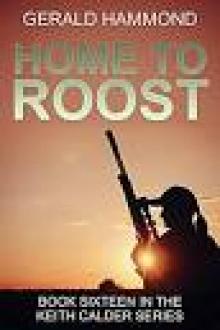 Home to Roost
Home to Roost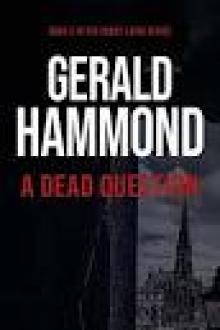 A Dead Question
A Dead Question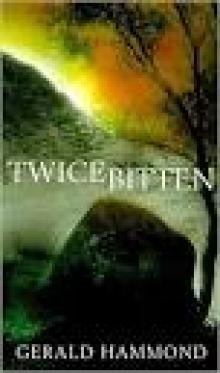 Twice Bitten
Twice Bitten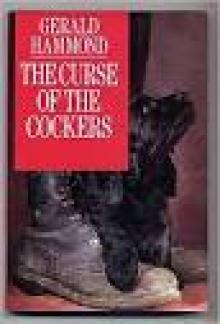 The Curse of the Cockers
The Curse of the Cockers In Loving Memory
In Loving Memory Illegal Tender (Three Oaks Book 12)
Illegal Tender (Three Oaks Book 12) Cold Relations (Honey Laird Book 1)
Cold Relations (Honey Laird Book 1)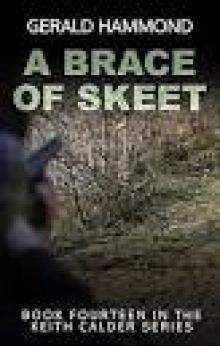 A Brace of Skeet
A Brace of Skeet Silver City Scandal
Silver City Scandal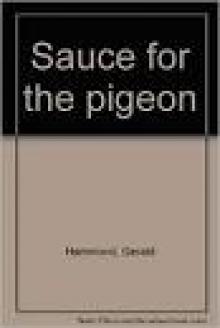 Sauce For the Pigeon
Sauce For the Pigeon Cold Relations
Cold Relations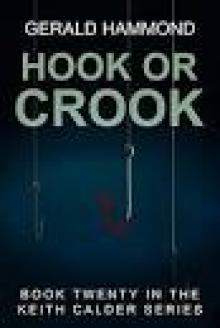 Hook or Crook
Hook or Crook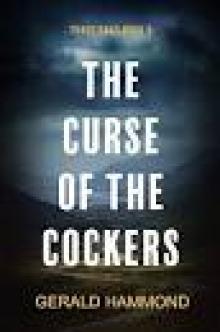 The Curse of the Cockers (Three Oaks Book 5)
The Curse of the Cockers (Three Oaks Book 5)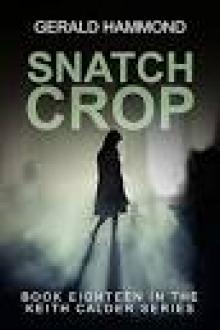 Snatch Crop
Snatch Crop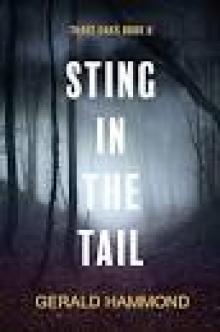 Sting in the Tail (Three Oaks Book 6)
Sting in the Tail (Three Oaks Book 6)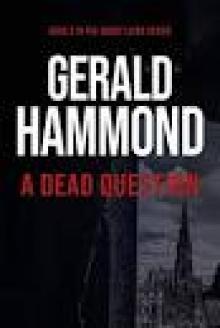 A Dead Question (Honey Laird Book 2)
A Dead Question (Honey Laird Book 2)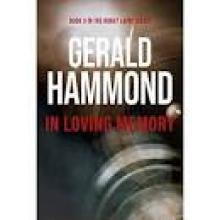 In Loving Memory (Honey Laird Book 3)
In Loving Memory (Honey Laird Book 3) Thin Air
Thin Air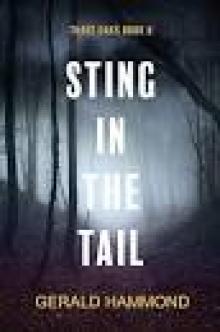 Sting in the Tail
Sting in the Tail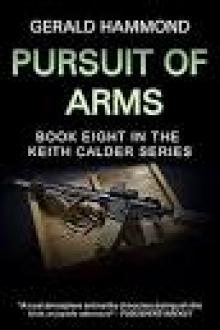 Pursuit of Arms
Pursuit of Arms The Game
The Game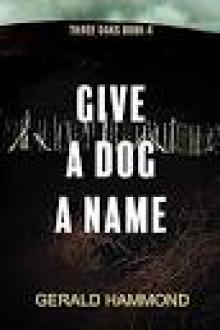 Give a Dog a Name (Three Oaks Book 4)
Give a Dog a Name (Three Oaks Book 4) Fair Game
Fair Game The Executor (Keith Calder Book 10)
The Executor (Keith Calder Book 10) Whose Dog Are You? (Three Oaks Book 2)
Whose Dog Are You? (Three Oaks Book 2)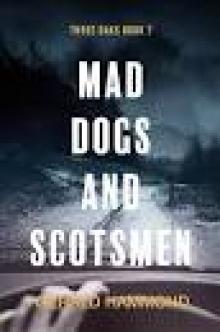 Mad Dogs and Scotsmen (Three Oaks Book 7)
Mad Dogs and Scotsmen (Three Oaks Book 7) Cousin Once Removed
Cousin Once Removed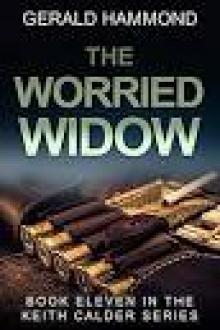 The Worried Widow
The Worried Widow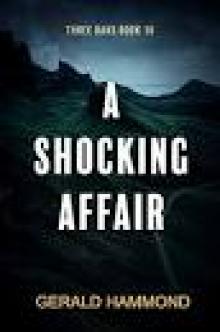 A Shocking Affair
A Shocking Affair Dead Weight (Three Oaks Book 11)
Dead Weight (Three Oaks Book 11) Whose Dog Are You
Whose Dog Are You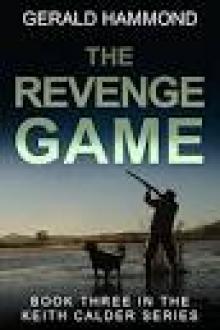 The Revenge Game
The Revenge Game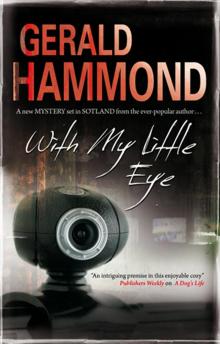 With My Little Eye
With My Little Eye Doghouse (Three Oaks Book 3)
Doghouse (Three Oaks Book 3)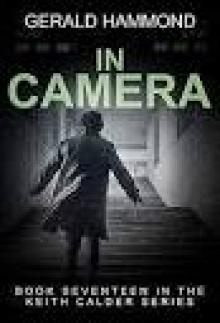 In Camera
In Camera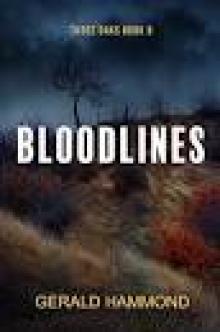 Bloodlines (Three Oaks Book 8)
Bloodlines (Three Oaks Book 8)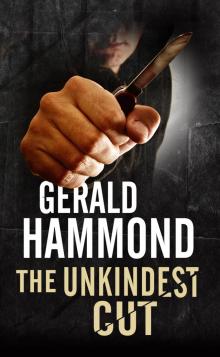 The Unkindest Cut
The Unkindest Cut